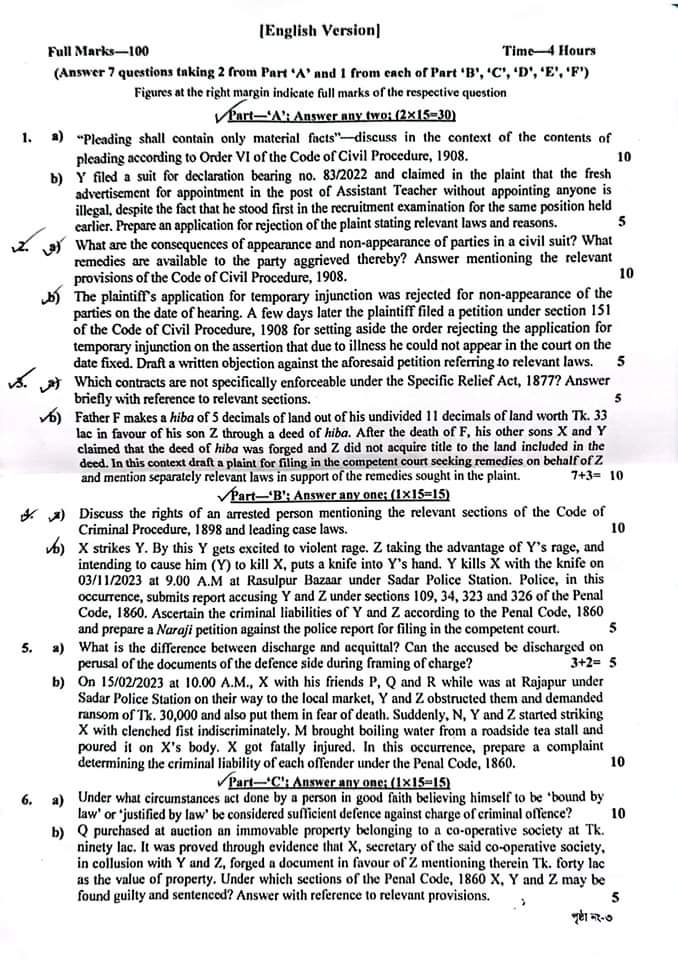17-year-old student remanded for 7 days in police murder case: What does the Children Act say?
A lower court of Dhaka granted 7-days remand against Hasantul Islam Fayaz, a 17-year-old student in the police murder case. The lawyer cited the Children Act requires persons under 18 to be tried in a Children's Court.
According
to birth registration, Hasantul Islam Fayaz is a little over 17 years old as he
was born on April 19, 2007. He secured Golden A+ under Dhaka Board in SSC
Examination 2024 from Shamsul Haque Khan School and College, Matuail, Dhaka.
He is
the 16th accused out of 17 in connection with the killing of a policeman near
Matuail Hospital during the recent protest movement over the reform of quota
system in government jobs. Fayaz was produced in the capital's lower court
today as an accused in a case filed on charges of killing a policeman,
concealing the body and stealing a motorcycle.
The age
of Fayaz is mentioned in the case as 19 years. Fayaz's lawyer Estiyak Hossain
said, "According to his birth registration and SSC certificate, Fayaz's
age is 17 years, 3 months and 8 days. We protest when the police applied for a
10-day remand of Fayaz in the case. Even though he was requested to register
the case without remand for the time being and send him to Juvenile Jail
following other methods of age proof, the court refused to do so. “I believe
Fayaz's seven-day remand is not maintainable”, he added.
It is to
be mentioned here that, if someone is below 18 years of age, as per the
Children Act 2013, he/she is to be treated as a child and prosecuted under the
said Act. Because, according to section 4 of the Children Act, 2013, all
persons under the age of 18 (eighteen) years will be considered as children and
section 15A (a) of the same Act mentions that a case has to be sent to the
Children's Court with the necessary documents to try the crime where it is committed
by the child. Even if someone's age certificate says 18, but they claim to be
under 18, they cannot be prosecuted until their age is verified.
Section 44 of the Children Act stipulates that no child shall be handcuffed or roped around the waist after arrest, but released video shows the police handcuffing him before the court. Besides, as per section 44 (4) the police officer shall record his age after ascertaining the birth registration certificate or, in the absence of the said certificate, the school certificate or the relevant documents including the date given at the time of admission to the school.
Therefore, the order
granting 7 days remand against the 17 year old child by the lower court without
following other methods of proof of age and without sending him to the
Probation Officer as appointed under section 5 is contrary to the Children Act and
his fundamental rights have been violated by this order of the learned Court.






